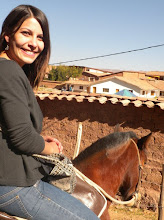I had a meeting with the dean of university in Khujand (not sure how much info I can give out). After a great meeting, she told me that she wanted me to be a professor at her university. The students here are "thirsty for English, thirsty for information about the world." She is unable to bring in current events or have discussion about foreign policy and American history. Her materials are extremely limited and she does not have the resources or the background to hold productive classes. I will be teaching modern American history and foreign policy. I did a lot of thinking, and I decided that I will push the envelope. I can teach a class full of debate and discussion about government because I will be under the auspice of the university that already has its curricula approved. As an educator, I am not just teaching modern American history, but I am sharpening critical thinking skills and encouraging independent thought. In no way am I trying to start a revolution (ha!), but it is important to encourage civil society and democratic norms. I'm designing a module that will have current events, media, etc. and hopefully, I can making an indent.
Friday, September 23, 2011
Thirsty for English
After a five hour bumpy drive (usually it takes 8!) through the gorgeous mountains, I finally made it to Khujand, the city where I will live for the next ten months. Khujand is absolutely beautiful. The city is smaller than the capital, Dushanbe, but it is the perfect size for me--not too big, not too small, and surrounded by a backdrop of old mountains and the Syr Daria. In Khujand, I had my first experience of the legendary (at least for us Central Asia-philes) Tajik hospitality. I lived with a family for about five days with another Fulbright fellow. Parvina and her husband run the independent news station and are extremely well-educated and progressive. It was so valuable to their perspectives on the media and the government. My understanding is that the state controls all of the media, except for these pockets of independent news stations that receive all their funding from advertisement. Once, her husband published something vaguely critical of the government, and he was picked up by the government and put in the military for two years. There is definitely a veneer of democracy, but if you dig an inch deeper, you find so many autocratic policies. Most of the youth are in Russia, so there isn't that critical mass necessary to push for reforms. I've found that this is particularly a problem in education. All educational materials must go through the Ministry of Education, so it takes years and years to have books, lesson plans, etc. approved by the government. There isn't the debate and critical thinking so prominent in the United States, but it is completely understandable. If the schools don't comply, they will be shut down, and the educators will lose their jobs. It's a struggle, especially as an educator, to spark critical thinking and debate, which forms the base of civil society.
Subscribe to:
Post Comments (Atom)

No comments:
Post a Comment